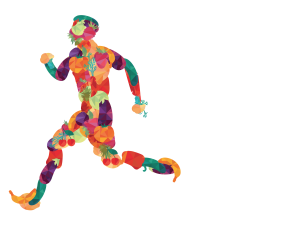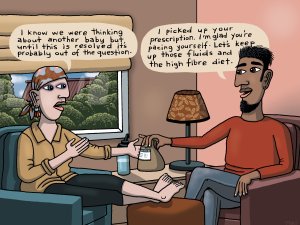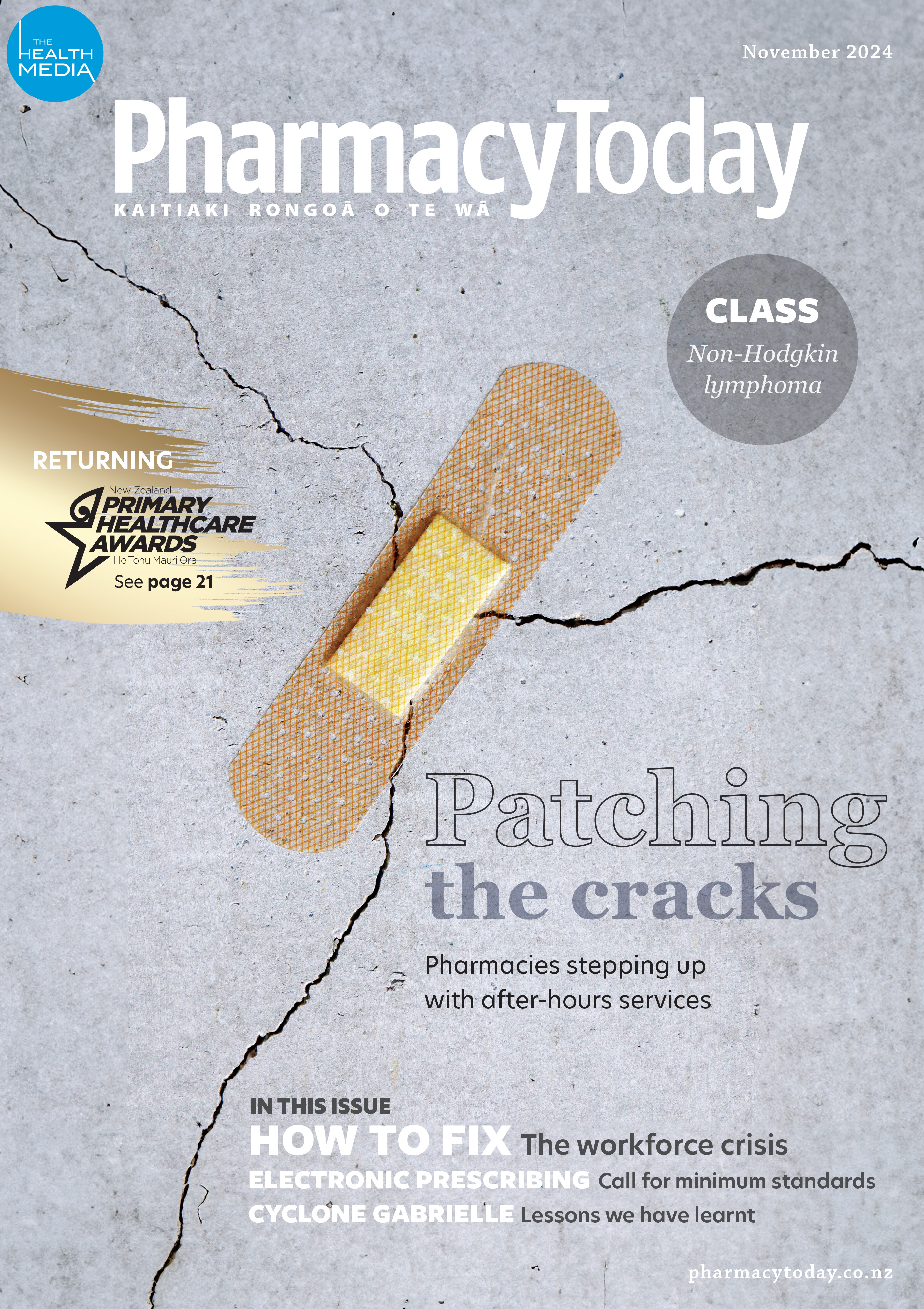Academic pharmacist Nataly Martini highlights the importance of understanding non-Hodgkin lymphoma and pharmacists’ roles in managing this condition
Natural healthcare’s role in the future of health
Natural healthcare’s role in the future of health

Ageing, mental health and viral infections are significant factors driving the future of natural health products, according to Lesley Braun, director of the Blackmores Institute.
People in the Western world are living longer, but with that comes more illness. Dr Braun said 18 per cent of the average lifespan was spent in ill health.
For example, in Australasia, that looks like an 83-year-old spending about 13 years of their life with health problems, including osteoporosis, agerelated macular degeneration, cataracts, hearing loss, COPD, cancer, osteoarthritis, cardiovascular disease (CVD), diabetes, kidney disease, heart failure, dementia and Parkinson disease.
Longevity research is getting serious and recent studies highlighted glucosamine as a promising anti-ageing supplement.
Glucosamine is usually associated with joint health, but Dr Braun said one study reported scientists were now looking at the supplement’s potential effects on CVD, cancer, and respiratory and digestive conditions. Research had also shown that glucosamine might be as effective as exercise in preventing premature death, she told the audience.
Probiotics and prebiotics being used as “psychobiotics” is one of the biggest trends in natural health supplements for anxiety and depression. Dr Braun said most human studies showing benefits had used products containing Bifidobacterium and Lactobacillus. One meta-analysis of studies published last year in the Journal of Functional Foods showed that psychobiotics had the best effect on depressed patients under 60.
Other emerging ingredients that could support mental wellbeing included adaptogens, such as ashwagandha, Dr Braun reported.
The race to accelerate research into antivirals for influenza, the common cold, HIV and coronaviruses had never been faster in the wake of COVID-19, Dr Braun said.
Long COVID is also being studied, revealing a strong place for natural health products in treating the syndrome.
Dr Braun said one study found up to two-thirds of people with long COVID were malnourished, and 72 per cent did not meet their energy requirements. Other recent studies had shown that 56 per cent of people were not getting enough protein and 45 per cent were deficient in vitamin D.
Dr Braun suggested there could be a more important role for herbals and probiotics with proven immune effects as antibiotic resistance worsened from medication overuse.
“Natural products do not have resistance issues,” she told the summit audience.
Artificial intelligence would see fast, better and cheaper healthcare testing available in clinics and for patients at home, Dr Braun said.
Advance technology will help people take better care of their health, which is becoming more necessary with the worldwide shortage of doctors and other health professionals.
She said the health workforce shortage would see complex medical issues and minor surgeries becoming the mainstay of medical practice, with some services being shared or handed over to other healthcare professionals, such as pharmacists.
Dr Braun said the greater role that pharmacists would play included more significant use of technology to dispense medicines, expanding vaccination programmes, performing more screening and point-of-care testing, telehealth consults and more prescribing rights.
A pharmacist herself, Dr Braun stressed that “funding models and turf issues need to be addressed”.







